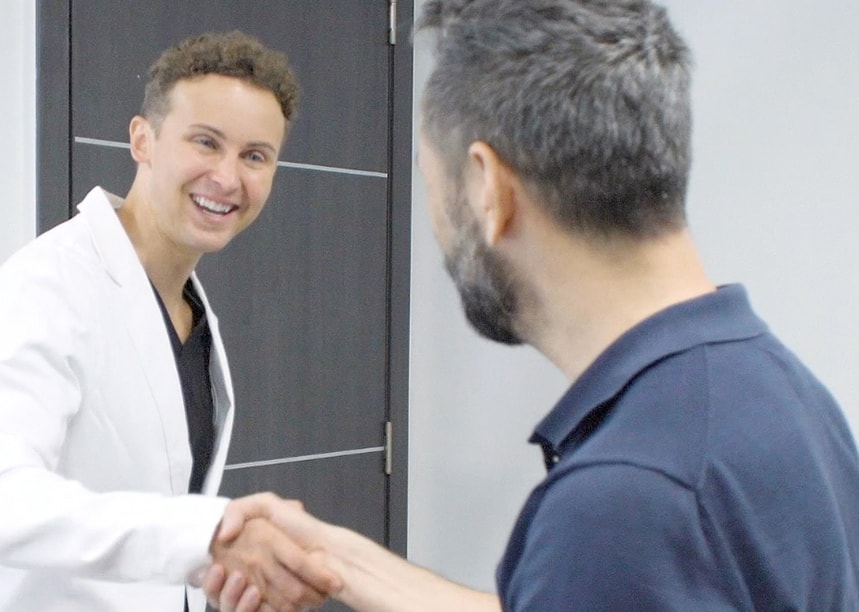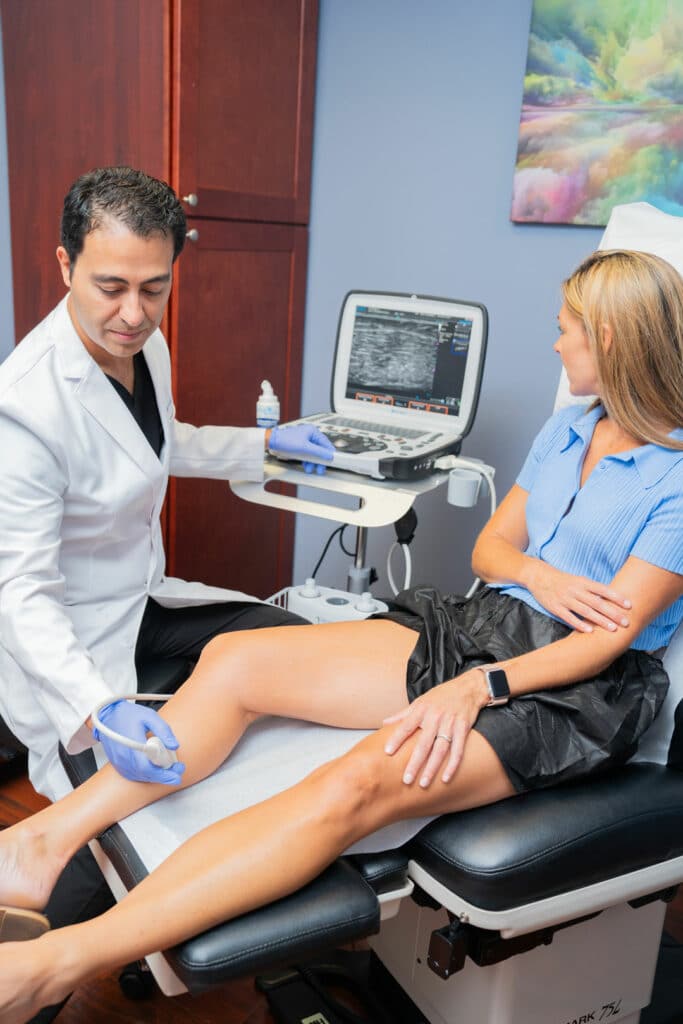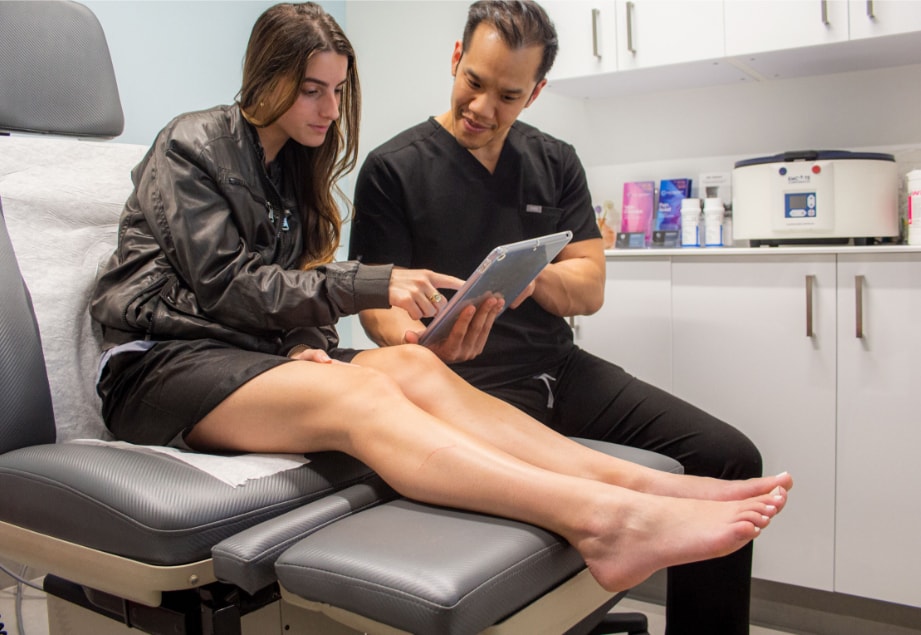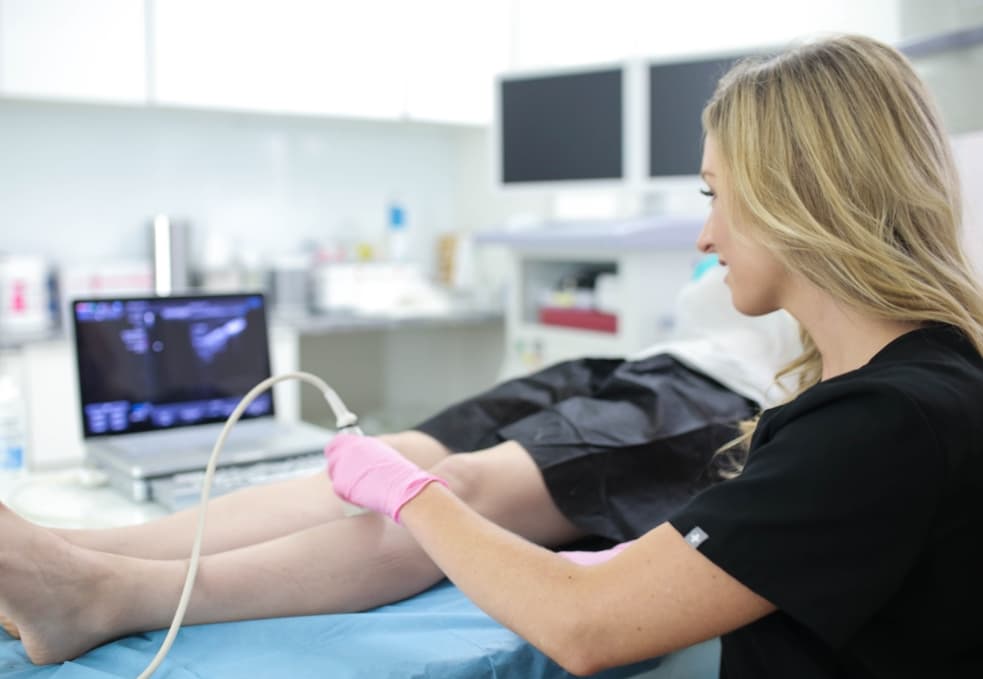What kind of doctor specializes in veins?
If you have problems with your veins, you may be referred to a phlebologist or a vein doctor. These doctors specialize in diagnosing and treating conditions affecting the veins, i.e., the blood vessels that carry blood from the tissues back to the heart. Veins have one-way valves that keep the blood from flowing backward. When these valves don’t work properly, the blood can leak backward and pool in the veins, leading to venous insufficiency.
Venous insufficiency can cause pain, swelling, cramping, and fatigue. It can also lead to serious problems, such as leg ulcers and blood clots in veins (deep vein thrombosis). A phlebologist or vein doctor can diagnose venous insufficiency with a physical exam and a special duplex ultrasound test. This test uses sound waves to examine the veins and check how well they work.
If you have venous insufficiency, your treatment will depend on how severe your symptoms are. Mild symptoms may be helped with lifestyle changes, such as wearing compression stockings and exercising. But long-term relief from vein problems can only be achieved through minimally invasive spider vein and varicose vein treatments, such as endovenous laser ablation, radiofrequency ablation, venaseal, sclerotherapy, and ambulatory phlebectomy. The specific treatment depends on your condition and symptoms.
If you have venous insufficiency, you must see a phlebologist or vein doctor for treatment. Vein doctors can improve your symptoms and prevent more serious problems from occurring. Maryland Vein Center is led by highly-skilled, board-certified vein doctors specializing in minimally invasive spider vein and varicose vein treatments. Our vein doctors always diagnose and treat the root cause of your vein problems to ensure long-lasting results.
You can find our vein center at 10215 Fernwood Rd, Suite 301, Bethesda, Maryland. Please schedule an appointment at the vein center in Maryland to initiate your diagnosis and treatment process.

What doctor treats vein problems?
Phlebologists, or vein doctors, are specially trained to diagnose and treat vein disorders. Vein doctors can come from any field of medicine, including anesthesiology, cardiology, or dermatology, provided they have sufficient training in diagnosing and treating vein problems. Furthermore, vein doctors should be certified by the American Board of Venous & Lymphatic Medicine, an organization that ensures your vein doctors are highly skilled and experienced.
If you’re experiencing symptoms like pain, heaviness, swelling, cramping, or skin ulcers in your legs, it’s time to see a vein doctor. Vein problems can be controlled with simple lifestyle changes, such as avoiding sitting or standing for long periods, wearing loose-fitting clothes, and elevating your legs when you can. But if you want long-lasting relief, your vein doctor may recommend minimally invasive vein treatment options, such as sclerotherapy, endovenous laser therapy, radiofrequency ablation, or venaseal.
How can I find a good vein doctor to remove varicose veins?
- Check Google listings for 5-star reviews. This is a great way to get an idea of the quality of care offered by a particular doctor.
- Ensure the vein center in Maryland is close to your location. This will make it easier to get to your appointments and allow you to get a feel for the staff and the facilities.
- Look for board-certified vein doctors. This ensures that the doctor has the necessary training and experience to perform the procedure safely and effectively.
- Ensure specialization in minimally invasive vein treatments. This means that the doctor is experienced in the latest techniques and has a good success rate with patients.
- Excellent bedside manners. This is important because you want to feel comfortable with the doctor and staff. The vein doctor must be compassionate and caring, and they must take the time to discuss your concerns, answer your questions, and offer personalized treatments.
What can get rid of varicose veins?
Several treatments can get rid of varicose veins, depending on the severity of the condition. In the initial stages, simple lifestyle changes, such as wearing compression stockings, avoiding long periods of standing, and exercising regularly, can prevent the symptoms from progressing.
But for long-lasting results, you may require minimally invasive treatments, such as endovenous laser ablation, radiofrequency ablation, venaseal, ambulatory phlebectomy, or sclerotherapy. These treatments can be done in a vein doctor’s office under local anesthesia and conclude within an hour.
What is the best treatment for varicose veins in the legs?
Although several minimally invasive varicose vein treatments are available, endovenous laser ablation (EVLA) and radiofrequency ablation (RFA) are two of the most effective.
- EVLA is a minimally-invasive procedure that uses a laser to close off the affected veins. The procedure is usually done in an outpatient setting and only takes about an hour. This procedure treats the root cause of varicose veins.
- RFA is also a minimally-invasive procedure that uses radio waves to heat and close off the affected veins. Like EVLA, the procedure is usually done in an outpatient setting, only takes about an hour, and treats the root cause of varicose veins.
- Another treatment option for varicose veins is ambulatory phlebectomy. This is a minimally-invasive procedure that involves removing the superficial varicose veins through tiny incisions on the skin’s surface. This is a purely cosmetic treatment for superficial varicose veins.
If you’re considering treatment for varicose veins, be sure to consult with a board-certified vein specialist. Our vein doctors will carefully evaluate your vein conditions and curate a personalized vein treatment plan that improves your cosmetic appearance and treats the root cause of your symptoms to minimize the risk of vein disease recurrence.





